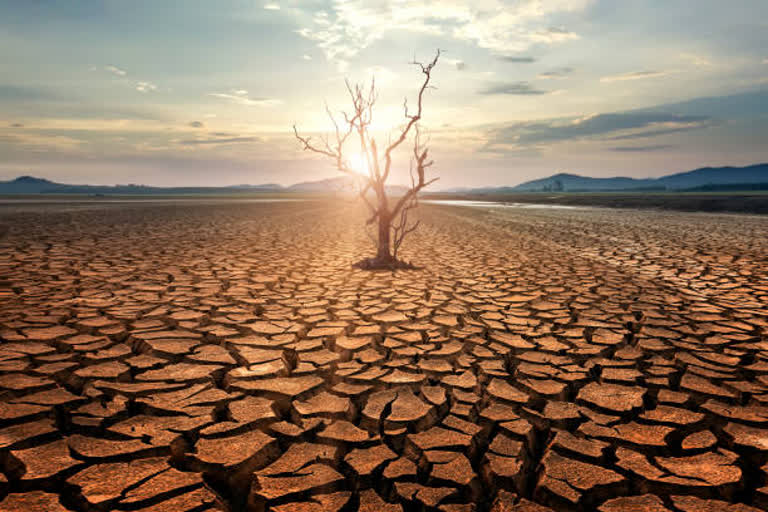Hyderabad: If you are a regular reader of Nature or Science, you will have seen with growing alarm reports pointing to the accelerating collapse of some of the most important planetary systems underpinning human survival. The Antarctic ice-shelf has contracted by almost 2% since 1997; further loss and thinning could lead to substantial sea-level rises. Climate change is causing rapid acidification of the Arctic Ocean, risking long-lasting damage to the region's ecology.
Climate effects are endangering the ability of forests to mitigate adverse atmospheric changes, especially in the Amazon and North America. Forest resilience is declining, with a halving of tree life expectancies in some regions. The world is edging closer to multiple tipping points that, once crossed, will drive temperature change well above 2°C. The key conclusion from these findings is that our current actions are insufficient to limit heating to the Paris target of 1·5°C.
For more than a decade, through Lancet Commissions and Series, we have sought to connect the developing climate crisis to human health. The centrepiece of this work has been the Lancet Countdown on Health and Climate Change, whose latest report we publish this week. The Countdown is the only independent monitoring mechanism for climate and health. Its findings are gloomy: “Climate change is undermining every dimension of global health”, write Marina Romanello and colleagues.
The COVID-19 pandemic has worsened an already bad situation. Food security has weakened. Health systems have been rendered more vulnerable. Energy resources remain dangerously reliant on fossil fuels. The adoption of renewable technologies is too slow. Heavily subsidised oil and gas companies are exceeding greenhouse gas emissions compatible with Paris targets. Yet there are some slim reasons for optimism. The scientific community, media, businesses, and political leaders are increasingly taking climate and health more seriously. There is a growing recognition that a health-centred response offers a healthy, low-carbon future. But the overall picture is not a positive one.
Also read:Almost every child on earth will suffer from heatwaves by 2050: UNICEF
This 2022 Lancet Countdown report comes at an important moment for the initiative. Regional Countdown centres have been established for China, Latin America, Europe, Africa, Small Island States, and Australia. The Lancet Public Health is publishing results from the China and Europe Climate Countdowns. The executive team, led by Romanello, is based at University College London and is generously financed by Wellcome—a virtuous partnership between university and funder. As the climate emergency intensifies, so the demands on (and expectations of) the programme will grow.
Meanwhile, the Countdown faces important challenges. The objective cannot simply be to publish an annual report card. The reality is that policy makers have badly underestimated the scale of the changes that must be made within society to limit global heating.
- Challenge one for the Countdown is not to become complacent, not to lose sight of the scale and scope of our common predicament.
- A second challenge is about what message the Countdown is trying to convey. Monitoring scientifically valid indicators with rigorously acquired data is the Countdown's core task. But indicators alone are not a persuasive narrative for decision makers.
- Third, what about size? As the Countdown enlarges, it must ensure that the findings, conclusions, messages, and recommendations from the multiple regional Countdowns are aligned so that the sum total of the programme's work is greater than its individual parts.
- Fourth, is Countdown doing all it can to measure and explain the complex global systems shaping climate and health—for example, food systems, which contribute about a third of greenhouse gases? The Countdown will have to continue to broaden its interdisciplinarity to accommodate the multisectoral nature of global heating responses.
- Fifth, the Countdown is a technical initiative, but it must not be afraid of politics. Our collective failure to address the climate emergency is political, not technical.
- A final challenge is to retain a sense of hope. Countdown must offer actionable recommendations for what must be done to strengthen human health in the face of global heating.
Everyone knows what Countdown is against, but what is it for? The Lancet Countdown on Climate and Health has manifestly evolved into an important and successful initiative. The threat remains huge. As Martin Rees, Astronomer Royal and former President of the UK's Royal Society, has pointed out: “This century is a special one, where we as humans destroy ourselves.” The Countdown is our best chance of putting health at the centre of a political response to protect human wellbeing. It deserves our support—but also action. (Lancet)
